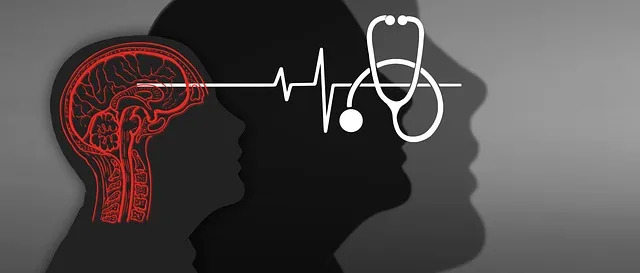Cultural competency is essential in modern healthcare, especially for diverse communities seeking services like those offered by Kaiser Boulder. Understanding and respecting cultural differences improves trust and health outcomes. In mental health, this involves tailored interventions, addressing unique beliefs, and navigating sensitive communication. Training healthcare professionals on diverse stress reduction methods and cultural contexts enhances accessibility. Kaiser Boulder's innovative program focuses on cultural sensitivity, providing personalized care through workshops on emotional regulation and crisis intervention. Culturally competent care respects diverse backgrounds, uses tailored techniques, fosters open conversations, and engages community leaders to improve mental health service access for underserved populations. For individuals seeking mental health services through Kaiser Boulder, this approach ensures inclusive, effective support.
“In an increasingly diverse society, cultural competency in healthcare is no longer a luxury but an essential requirement. This article explores the critical need for such training, focusing on its impact on access to mental health services. We delve into successful initiatives like Kaiser Boulder’s approach and present effective strategies for culturally competent care.
Additionally, we discuss community engagement as a key factor in overcoming barriers to mental health services, offering insights on how organizations like Kaiser Boulder facilitate equitable access.”
- Understanding Cultural Competency in Healthcare: A Necessary Overview
- The Impact of Cultural Biases on Mental Health Service Access
- Kaiser Boulder's Approach to Training for Cultural Sensitivity
- Effective Strategies for Providing Culturally Competent Care
- Encouraging Community Engagement and Overcoming Barriers to Mental Health Services
Understanding Cultural Competency in Healthcare: A Necessary Overview

Cultural competency is an essential aspect of modern healthcare, especially with diverse populations seeking services through providers like Kaiser Boulder. It involves understanding and appreciating cultural differences to deliver effective care that respects individual and community values. This approach ensures patients feel valued and understood, fostering trust and better health outcomes.
In the context of mental health services, cultural competency is crucial. Mental health professionals must be adept at navigating complex communication strategies, especially when dealing with diverse patient backgrounds. This includes learning how to assess risks appropriately, considering cultural beliefs around mental health and self-esteem, and tailoring interventions to meet unique needs. By embracing these principles, healthcare providers can create inclusive environments that encourage open conversations about sensitive topics, ultimately improving access to much-needed services like those available through Kaiser Boulder.
The Impact of Cultural Biases on Mental Health Service Access

Cultural biases can significantly impact an individual’s ability to access mental health services, creating barriers that affect diverse communities. When cultural sensitivities are lacking in healthcare practices, certain populations may feel misunderstood or hesitant to seek help due to historical or societal factors. For instance, navigating the mental health system within a new culture, like those seeking care through Kaiser Boulder, can be challenging for immigrants or refugees who face unique stressors related to resettlement and acculturation.
These biases often manifest as misunderstandings about cultural norms surrounding emotional expression, privacy, and communication styles, leading to misdiagnoses or inadequate treatment plans. Enhancing cultural sensitivity in mental healthcare practice is crucial to ensuring effective care. By implementing training programs that educate professionals on diverse stress reduction methods and building confidence through knowledge of various cultural contexts, the accessibility of mental health services can be improved. This approach fosters an environment where individuals from all backgrounds feel welcomed and empowered to receive the support they need, ultimately promoting better mental well-being.
Kaiser Boulder's Approach to Training for Cultural Sensitivity

Kaiser Boulder, a renowned healthcare provider, has pioneered an innovative approach to training aimed at enhancing cultural sensitivity among its staff. This comprehensive program recognizes the vital role that cultural competency plays in delivering effective healthcare services, especially for diverse communities. By focusing on this aspect, Kaiser Boulder ensures that patients from various ethnic, racial, and socio-economic backgrounds receive personalized care tailored to their unique needs.
The training involves immersive workshops where medical professionals learn about different cultural practices, beliefs, and values. Participants are equipped with Crisis Intervention Guidance, enabling them to handle sensitive situations with empathy and skill. Additionally, the program emphasizes building confidence in providing mental health services, teaching techniques for Emotional Regulation that can be applied across diverse patient interactions. Through these efforts, Kaiser Boulder strives to create an inclusive environment, fostering better connections between healthcare providers and the communities they serve.
Effective Strategies for Providing Culturally Competent Care

Effective strategies for providing culturally competent care involve understanding and respecting diverse cultural backgrounds, beliefs, and practices. Healthcare providers should be trained to assess and address patients’ unique needs, ensuring that every individual receives personalized treatment. One key approach is to incorporate Emotional Well-being Promotion Techniques tailored to specific cultures, fostering open conversations about mental health. By creating a safe and non-judgmental environment, providers can encourage patients to seek help for issues like depression, utilizing prevention strategies that promote positive thinking.
For instance, when working with communities from different cultural contexts, such as those accessing how to get mental health services through Kaiser Boulder, it is essential to have trained staff who are sensitive to language barriers and cultural nuances. This might include providing multilingual resources, incorporating culturally relevant therapeutic approaches, and ensuring that all information materials are accessible and inclusive. By doing so, healthcare providers can improve patient satisfaction and outcomes, ultimately enhancing the quality of care delivered.
Encouraging Community Engagement and Overcoming Barriers to Mental Health Services

Encouraging community engagement is a vital aspect of enhancing access to mental health services, especially for underserved populations. Kaiser Boulder has recognized the importance of fostering connections within diverse communities to overcome barriers that often prevent individuals from seeking help. One effective strategy is to involve local community leaders and organizations who can act as advocates and facilitate dialogue about mental health. By organizing cultural events, workshops, or outreach programs, healthcare providers can create safe spaces for open conversations, raise awareness, and dispel stigma associated with mental illness. This approach not only encourages individuals to initiate self-care practices but also builds trust between the community and healthcare systems.
Overcoming barriers to mental health services often involves addressing cultural sensitivity in healthcare practice. A Mental Health Policy Analysis and Advocacy study highlights the need for culturally competent care, ensuring that services are tailored to meet the unique needs of diverse communities. Kaiser Boulder’s commitment to promoting Cultural Sensitivity in Mental Healthcare Practice includes providing training on implicit biases, racial trauma, and understanding different cultural perspectives on mental health. By fostering an inclusive environment, healthcare providers can create a safe haven where individuals feel comfortable discussing their challenges and seeking appropriate support, such as how to get mental health services through Kaiser Boulder.
Cultural competency training is a powerful tool to improve healthcare delivery, especially in accessing mental health services. As highlighted by Kaiser Boulder’s successful initiative, organizations can foster an inclusive environment and better serve diverse communities. By understanding cultural biases and implementing effective strategies, healthcare providers can ensure everyone receives quality care. Engaging community members and overcoming barriers are key steps towards achieving equitable mental health service access, ultimately enhancing patient outcomes and satisfaction.






